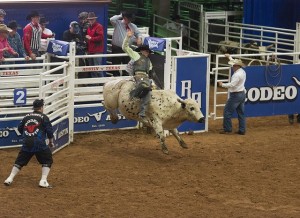parting, leaving, farewell 
[noun]
[het af-scheid]
Thanks everybody for the kind words in response to the changes that I announced on Monday. So, instead of saying goodbye, I will continue writing 🙂 Nevertheless, today's word is "parting": "afscheid" in Dutch. It applies to situations where you say goodbye to somebody forever, or for a long period of time. When two people bid each other farewell, in Dutch we say 'ze nemen afscheid van elkaar'.
If you are just saying goodbye for a short period of time, we say 'elkaar gedag zeggen'. Which by the way can also be used when greeting each other 🙂
For those in the Netherlands who listen to Dutch radio stations, a popular song at the moment is "Afscheid" by Dutch singer Glennis Grace. It's her first number 1 hit in the Netherlands and the breakthrough that many feel she deserved. The original version of "Afscheid" is by the band Volumia with singer Xander de Buisonjé.
Let's learn more about "Afscheid" by watching the video of Glennis Grace performing in the TV show "De beste zangers van Nederland" (Holland's best singers). I've provided a translation to help you understand the Dutch.
Lyrics
Altijd bij elkaar, m'n armen om je heen
(Always together, my arms around you)
M'n allergrootste liefde, dat wist ik echt meteen
(My greatest love ever, that I knew right from the start)
De allerlaatste weken, de dagen gingen snel
(The very last weeks, the days went by quickly)
Dichtbij komt het afscheid, moeilijk wordt het wel
(The moment of parting comes closer, tough it will be for sure)
Zeg dat je niet hoeft te gaan schat
(Tell me that you don't have to go darling/baby)
Dat je aan mij echt genoeg had
(That I was enough for you)
Zeg dat je niet hoeft te gaan schat
(Tell me that you don't have to go darling/baby)
Ga schat, want je moet, ik weet je moet
(Go baby, because you have to, I know you have to)
Als het even kon dan bleef ik nog een nacht bij jou
(If it all possible, I would stay another night with you)
Als het even kon dan bleef ik nog een nacht bij jou
(If it all possible, I would stay another night with you)
Dan zou ik zeggen dat ik op je wacht
(Then I would say that I will wait for you)
Dat de toekomst naar ons lacht
(That the future smiles at us)
Dan zou ik zeggen voor de zoveelste keer
(Then I would say for the umpteenth time)
Ik wil geen ander nooit meer
(I don't want anybody else, never again)
De koffers staan al buiten, de achterklep slaat dicht
(The suitcases are already outside, the lid of the boot/trunk slams to)
Een laatste lange kus in het vroege ochtendlicht
(A last long kiss in the early morning light)
Je kijkt me liefjes aan en pakt me stevig beet
(You look at me sweetly and take hold of me firmly)
Ik fluister in je oor dat ik je niet vergeet
(I whisper in your ear that I will not forget you)
Zeg dat je niet hoeft te gaan schat
(Tell me that you don't have to go darling/baby)
Dat je aan mij echt genoeg had
(That I was enough for you)
Zeg dat je niet hoeft te gaan schat
(Tell me that you don't have to go darling/baby)
Ga schat, want je moet, ik weet je moet
(Go baby, because you have to, I know you have to)
Als het even kon dan bleef ik nog een nacht bij jou
(If it all possible, I would stay another night with you)
Als het even kon dan bleef ik nog een nacht bij jou
(If it all possible, I would stay another night with you)
Dan zou ik zeggen dat ik op je wacht
(Then I would say that I will wait for you)
En dat de toekomst naar ons lacht
(And that the future smiles at us)
Dan zou ik zeggen voor de zoveelste keer
(Then I would say for the umpteenth time)
Ik wil geen ander nooit meer
(I don't want anybody else, never again)
Nooit meer zal ik voelen wat ik voel voor jou
(Never again I will feel what I feel for you)
Nooit meer zal ik voelen wat ik voel voor jou
(Never again I will feel what I feel for you)
Dus ga nu maar, droog je tranen af
(So leave now, dry (wipe away) your tears)
En onthou heel goed dat ik van je hou, van je hou
(And don't (you) forget that I love you, love you)
Nee, nee, nee, je hoeft niet te gaan schat, nee
(No, no, no, you don't have to go baby, no)
Nee, nee, nee, je hoeft niet te gaan schat, nee, nee
(No, no, no, you don't have to go baby, no, no)

 Literally “erop of eronder” translates as “on it (/on top) or under it (/underneath)”. It can be used in that translation, for example to determine where an object needs to be placed. Without context, when you say something is “erop of eronder”, you are saying that this is the moment of truth, you will fail or succeed, make or break.
Literally “erop of eronder” translates as “on it (/on top) or under it (/underneath)”. It can be used in that translation, for example to determine where an object needs to be placed. Without context, when you say something is “erop of eronder”, you are saying that this is the moment of truth, you will fail or succeed, make or break.